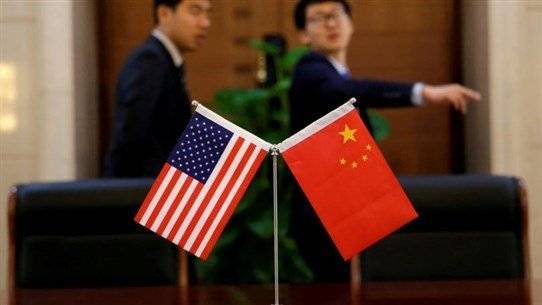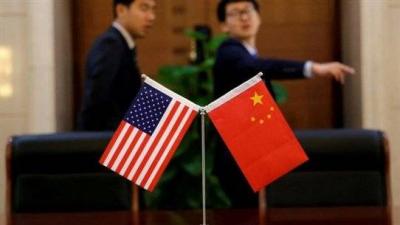As soon as Russia began its military operations in Ukraine, speculations arose regarding what might happen across the Taiwan Strait, which separates China from Taiwan (Formosa). The reason is clear to any political observer who understands what the collapse of "red lines" means in a turbulent world where ambitious leaders are obsessed with "correcting historical mistakes" and addressing long-silenced "national pride."
It is often quoted from the ancient Chinese sage Lao Tzu: "The greatest warriors never become angry." Indeed, several cultures highlight the virtues of "patience," which includes suppressing anger, containing rage, and acting wisely, along with timing, selecting adversaries, and choosing battlegrounds. However, not everyone in politics possesses these qualities, nor do all circumstances allow for freedom of action.
With the end of the "Cold War" and a clear victor and vanquished, power dynamics imposed themselves for a time around the world. While the victorious West hastened to celebrate its grand victory and some of its thinkers rushed to speak of the "end of history" and the "clash of civilizations," several truths and convictions emerged, and many grievances were suppressed and postponed in light of a massive imbalance in power.
Due to subjective and objective reasons, the collapse of the former Soviet Union, the communist pole in the West, did not coincide with China's situation, its counterpart and alternative model in the East. China is a very complex civilizational, spiritual, social, and economic case that fundamentally differs from the Russian situation. While the Soviet experience faltered, aged, and decayed, China experienced a transformative era marked by radical changes. These changes began with the "battle" for succession after Mao Zedong with a quasi-suicidal "Cultural Revolution" and culminated in a "pragmatic coup" that redefined socialism, nationalism, and the future, unleashing suppressed potentials that many recognized in the "sleeping yellow giant."
Over time, however, the turbulent waters of change stagnated, and a new global reality emerged, with its own balances, prohibitions, and ambitions… and also "red lines." Although the concept of "classical communism" associated with the masters of the Kremlin fell and with it the "Warsaw Pact" and the "Berlin Wall," a "Phoenix" of nationalism arose from the ashes of this concept, benefiting from the collapse of "bipolarity - at least - in the West." As we know, the situation did not stop at the reunification of Germany after the fall of its dividing wall, but rather NATO expanded its influence into the territories of its arch-rival, the Warsaw Pact.
Thus, the concept of deterrence changed, and hostilities were redefined and reorganized. The focus also shifted from the outward "common enemy" with the collapse of that enemy in an "international war." With the end of "international projects," internal "identity wars" ignited, worsening in countries like Spain, Italy, and Britain to the West, while also erupting in the former Yugoslavia and Czechoslovakia. Just as the certainties of Europe changed considerably, many certainties in Asia, Africa, and South America also transformed.
After the Soviet Union's collapse, two alternatives emerged that took power in the areas under its hegemony, whether in the newly independent former Soviet entities or neighboring countries in Eastern Europe:
The first, formed by seasoned communist leaders who easily changed their attire and slogans, surfed the wave of change thanks to their patronage influence and "apparatchik" organizational experience. This was evident in the Central Asian and Caucasian republics.
The second was led by Christian nationalist right-wing groups, either supported by the Church or Western powers. This group took power in the Catholic and Protestant entities that were religiously distant from Moscow, as seen in the Baltic republics, Poland, Hungary, Croatia, and the Czech Republic. Currently, the governments of Poland and Hungary are considered the most extreme right-wing in all of Europe.
This reality left its mark on Russia's reaction shortly after the "mediator of collapse" Boris Yeltsin and the rise of Vladimir Putin. Putin, a product of the security establishment, witnessed the West's refusal to be satisfied with what was achieved on the ground; the West also decided to strip Russia of its Slavic sister, Ukraine, which is its "greatest line of defense" against the encroachment of Western influence to the east.
Many believe that with this step, Putin had no choice but to rally national pride and mobilize the siege mentality that Europeans have piled on Russia... from Napoleon Bonaparte to Adolf Hitler. Today, Putin, along with tens of millions of Russians, Ukrainians, and Belarusians, believes that his forces are correcting the "historical mistake" that tore apart the imperial-Soviet entity and destroyed the great homeland at the end of the 1980s and the beginning of the 1990s.
In the Far East at the Taiwan Strait, the details may differ, but the principle remains the same. Here, also, humiliation is forbidden, and the Chinese leadership, eager to seize the future, does not forget the past nor get deceived by the present. The Chinese political conscience recalls "the Opium War" and its repercussions, as well as "Japanese hegemony." It does not forget the Western stance - sometimes selective and often coercive - regarding China's control over the self-governing regions of Tibet and Xinjiang (East Turkestan). The indigenous populations in both regions belong to ethnic groups different from the Han Chinese and cultures distinct from theirs.
Since the victory of the "Maoist" communist revolution in 1949, Beijing leaders have regarded Taiwan as Chinese territory occupied by a rogue regime that defies legitimacy. It is well-known that the communists defeated President Chiang Kai-shek, who ruled from 1928 to 1949 and was the leader of the Kuomintang (Chinese Nationalist Party), forcing him and his supporters to flee to Taiwan. At that time, Chiang and his supporters considered mainland China as land occupied by communist rebels, with a duty to liberate the entire Chinese homeland and place it under the authority of the "nationalist" government.
However, circumstances have changed; the communists not only succeeded in reinforcing their dominance over China and consolidating their rule internally and internationally, and settling the Hong Kong issue on their terms, but there was also a shift in the mindset of the liberal younger generations in Taiwan, who find the old "nationalist" slogans futile and recognize that they must coexist with reality. Therefore, they aspire to an independence that Beijing might accept, coexisting with it according to reliable international understandings and guarantees.
As of now, Beijing's official rhetoric remains unchanged, but the Chinese leadership may not be comfortable hastening the creation of hostilities and rallying against it… if it overexerts its intimidating muscle toward its "neighbors." The emphasis here is on three "neighbors" that hold significant importance in international calculations: Russia, Japan, and India.




